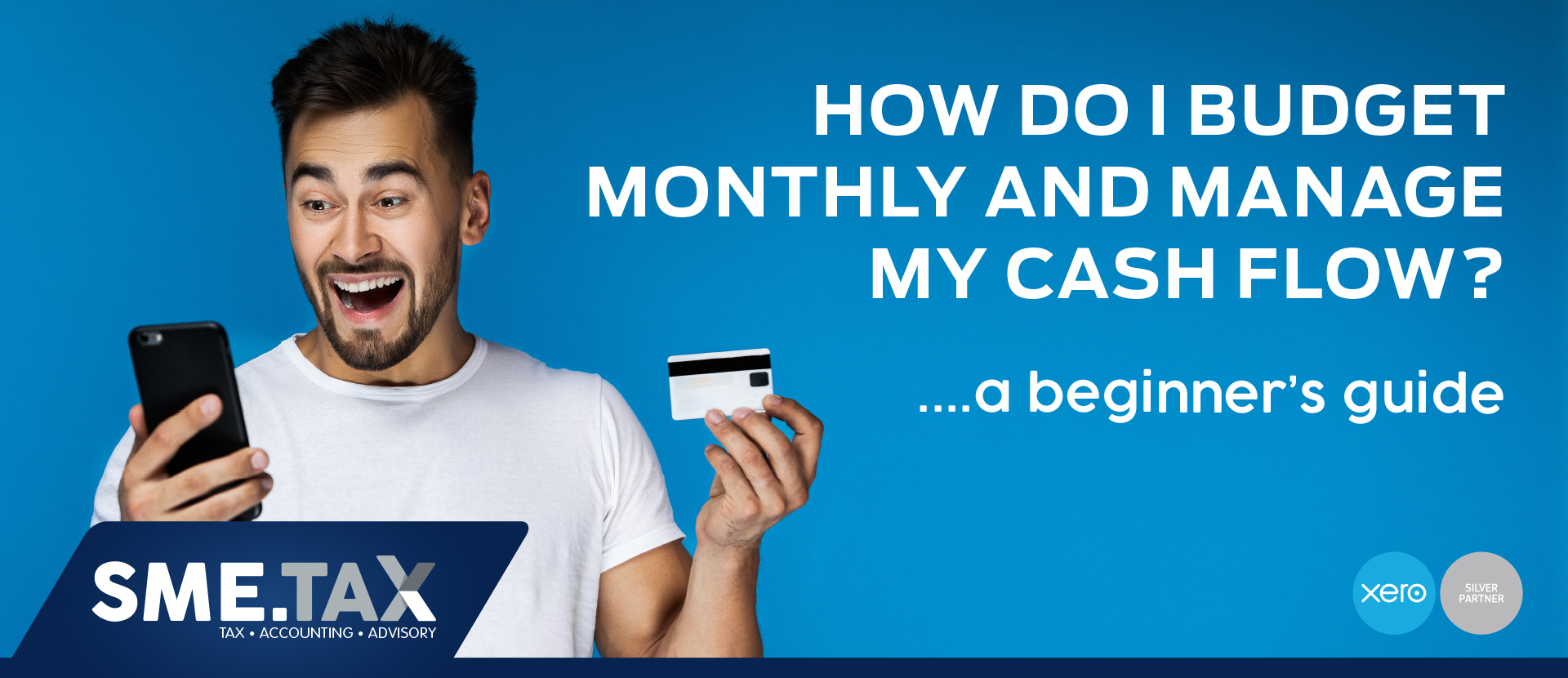
How do I budget monthly and manage my cash flow?
…a beginner’s guide.
At SME.TAX we have found that the best method we know of in assisting our SME clients with understanding this topic is to breakdown what is meant by “monthly budget” and “cash flow” once we have looked at each individually, we can then see how they work together.
Monthly Budget
Monthly budgeting is as the name suggests, a “budget” of your projected monthly turnover and expenditure. When you are first starting your business, it might be a little difficult to compile exact numbers regarding your income and expenditure. However, regardless of this difficulty, we suggest you at least estimate a Turnover figure and try compile a list of all the possible expenses you think you might incur along with amounts that you might spend on each.
The above exercise will be the foundation for your monthly budget and as you begin trading you can then replace the projected figures with your actual figures. This exercise of replacing actual figures with estimated ones, is in itself a learning tool as it will very quickly reveal if you have over or underestimated your income or expenditure.
If you have done your initial planning well, you would have underestimated your income and overestimated your expenses 🙂
Cash Flow Forecast
Once again, as the name suggests, cash flow is indicative of how the money flows through your business. Contrary to popular belief, cash flow is not just the money you receive from your clients, it is all the money you have access to, regardless of whether it is overdraft, shareholder loans, standard loans, debtors, etc.
Just like the budget you prepared above, you can prepare a cash flow forecast to ensure you have sufficient funds available to meet your financial commitments when they become due.
Again, if you did your planning correctly, you would have sufficient funds to not only meet your expected monthly commitments, but also enough to put aside, for those unexpected expenses that invariably occur
How do they work together?
As you can see your budget reveals your turnover, your expenses and what profit you are going to make on a month-by-month basis. Your cash flow, on the other hand reveals how you are going to pay for your expenses on a month-by-month basis from your turnover or other sources of funding.
If you are looking at your budget and cashflow regularly and correctly, it will highlight when in the future you will need additional funding and provide you with sufficient warning so you can raise the additional funds in time.
The practical example below will be familiar to the majority of small businesses:
You have been invoicing your clients monthly and 70% of them pay within 30 days while the remaining 30% pay between 90 and 120 days. The unpaid 30% is generally your profit margin, so provided you keep bringing in new work the status quo is manageable.
The unthinkable now happens, let’s say a business stoppage due to a global pandemic, and not only are you unable to secure new clients, but your existing “poor paying” clients are unable to settle their outstanding invoices.
What now? Do you have sufficient cash flow to keep your business afloat?
If you had done your homework, this situation is easily managed as you would have done one or all of the following:
- Sent out letters of demand, to the clients in arrears, the moment the strike was announced
- Seen the bank and secured an overdraft or bridging finance
- Made arrangements with your creditors to extend your terms of credit
- Arranged loans from family and friends
Our Services:
At SME.TAX we do more than just assist clients with their provisional taxes.
We are your “one stop SME shop”, assisting with everything from Accounting, Business Management, BEE, Consulting, Company Registration to Payroll and Mentoring.
For more information, please visit our website www.sme.tax or give us a call on 072 207 4789



